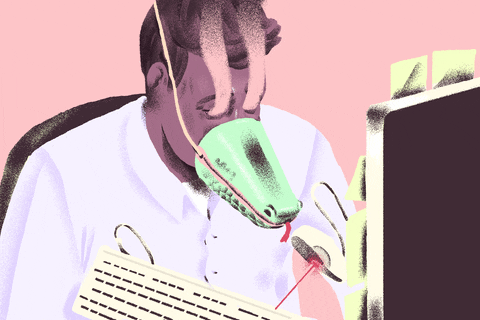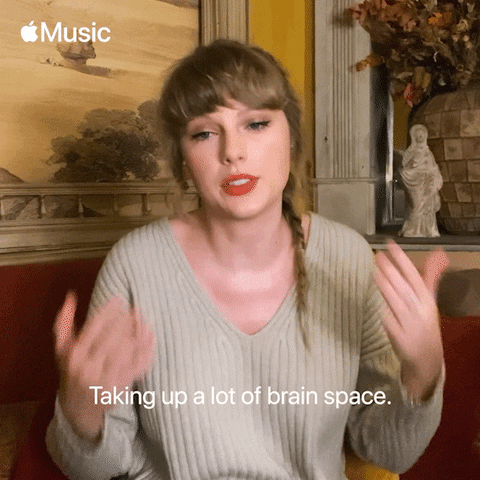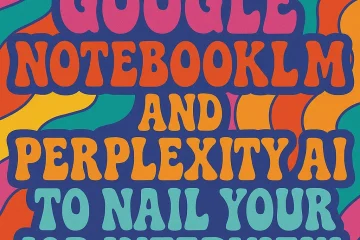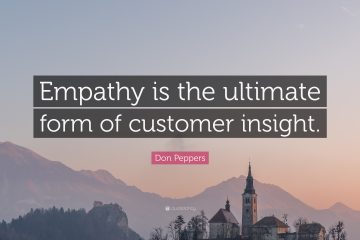Have you ever felt like a part of your brain is shorting out and burning? Or do Fridays, Saturdays, and Sundays feel like days to worry about the upcoming Monday more than respute for the current week?
Since the pandemic hit, I think more people are aware of burnout phenomenons be it career or personal life situations and it’s a serious problem that many of us don’t know how to deal with.
Pre and Ongoing Pandemic Burnout
Burnout is nothing new, it surely was present even before the pandemic.
We’ve all experienced physical burnout and mental fatigue with our jobs, business, school, and relationships, however, something changed in 2020 when COVID-19 invaded our lives. Mental and emotional burnouts are no longer occasional, triggered phenomena. They’re now almost the de-facto norm that we need to find relief from.
Working remotely or working from home became a norm as the pandemic forced companies to redefine how work should be completed.

There are many benefits that come with remote work and not being confined in an office. From more autonomy, elimination of soul-sucking commute, and with that, a lot more time to do the things that we love.
But surprisingly, that’s not what’s happening.
We Don’t Know How to Remote
While remote work has many benefits it also comes with its own set of unexpected challenges that were quite universal and rather unexpected – even for someone like me who’s been doing partial or full remote work the past decade plus.
Many employees have expressed feeling isolated, withdrawn, and out of routine. Work from home employees tend to be more susceptible to burnout due to a lack of work-life balance, ironically, as many surveyed expressed that their working hours actually increased and it’s more difficult to separate home from work, particularly those who do not have dedicated, separate areas in their homes to work.
From the endless video conferences to starting work as soon as you open your eyes, the elimination of “commute buffer” developed an unexpected consequence in exchange for office life.
Add to the stress of having to be a full-time parent or caregiver due to school closures, the pressure can be immense.
In the grand scheme of things, most would still prefer to have the option to work from home or be remote completely and feel that we just haven’t learned how to do this right as the pandemic is a black swan event, however, if you’re stressed and suffering from burnout NOW, it’s critical to find ways to manage the problem internally.
What are the Symptoms that You need a Break?
Work burnout, or the feeling of physical and emotional exhaustion due to work, is debilitating. It can lead to health problems and other occupational hazards, and relationship issues outside of work. But how do you know if you’re near the boiling point and need a break?

Do you exhibit any of these since the pandemic?
- Too tired for anything, including your hobbies or other activities outside of work
- Discouraged about your job because you’re both scared of losing your job but also wanting to quit
- Taking fewer breaks at work because it’s hard to get started again after a break is over
- Have trouble concentrating on tasks at hand
- Tendency to procrastinate more often than usual
- Having a shorter fuse than normal
- Dread weekends because you don’t want to “waste” it and it just reminds you of Monday starting again
- Justifying bad financial or vice habits
How I’m Dealing With Work Burnout and Mental Stress
Burnout is an emotional, physical, or mental exhaustion that can make it difficult to go to work. When you feel like your day is too long and you are not getting any work done at all, burnout is probably the cause.
Here are some processes I’m working on and integrating to my life to deal with work burnout and emotional stress:
Finding My Version of Peace
There’s a quote that a popular columnist, Ann Landers, that strikes a chord in today’s hyper-connected world that I feel can be adapted to self-care more than just dealing with external stimuli, she said:
“Hanging onto resentment, is letting someone you despise live rent-free in your head.”
She said this way back in 1999 before passing and the advent of social media and hyper-tribalized opinions turned this quote from a self-reminder to be kind to ourselves to a statement that we should ignore the situations and characters that are out of our control, which I think is an unfortunate and negative application of this great statement.
In our day-to-day lives, we’re bombarded with scenarios and people that affect our emotional state and calm. What I’m working hard to achieve is not to remove resentment from my head and focus more on the moments, experiences, and people that make me feel at peace and fill my limited brain space with gratitude.

What defines inner peace is different for everyone, but for an overthinker like myself, it’s hard to not harbor resentment or dwell on the negative, but slowly, I realized that finding the positives in experiences make it easier to find peace by treating negative incidents as moments of clarity, learning, and exploration for empathy than just trying to convince myself that I’m in the right.
Knowing My Limits and Boundaries
As much as employees complain about bosses and companies, I think in many cultures, we’re just programmed to please our managers and clients wherein we fail to set reasonable and agreed-upon boundaries in the past, leading to a culture of 24/7 on-call arrangements being the norm.
I’m fortunate enough that my company embraces a pro-active work-life separation through policies against responding to calls and emails after work hours and work week or when I’m on leave, having regular conversation about work load and project priorities, etc.
If not, however, you have to take matters in your own hands and set boundaries defined by your agreement and contract.
For example, most phones can set up separate profiles for work and personal apps wherein I can just flick the “Work” profile off and I won’t receive notifications outside of my personal apps. That’s a good start. Better yet, I wondered why not disconnect from my internet life more after work hours and weekends?
Personally, I try to minimize physically touching my phone as much as possible outside of work hours. I follow certain protocols like do as much browsing and posting on social media as I wish within a 2hr timespan at the most and that has to occur only after lunch, for example, to make sure I’ve done more meaningful and important things before touching the phone.
If I think that “my boss won’t allow that”, well, ask myself if I’m choosing to allow this to happen by not setting boundaries (or accepting that such intrusion is OK), or will I put my foot down and voice out my concerns.
If I decide that I can’t afford to rock the boat professionally, unfortunately, there’s not a lot of solutions other than suck it up until I change my circumstance, right?
Be Mindful of My Energy Levels
I don’t care how much of a Tony Robbins or Gary Vaynerchuk fan you are, we all have limits in energy levels, particularly mentally.
The constant barrage of “winning”, “no limits”, “no excuses”, and coming out on top might work for certain people, but it’s a steep hill to climb for many that can’t oversimplify generic motivation rah rah slogans to break out of a funk. These “motivation” slogans do more harm than good, in my opinion, except for the wallets of the promotors.
Our energy levels are not linear, nor are they predictable. I found this interesting video wherein the author of the book Willpower, Roy Baumeister stated that we have a relatively finite amount of willpower each day, and prioritizing our tasks to our level of willpower can maximize our use of time and energy throughout the day.
It shifts how we look at productivity, willpower, intent, and energy level to help us anticipate when we’re running out of gas and hitting the stress threshold.
Getting Enough Sleep
I have to admit, my sleep quality and routine are quite poor for a number of years now.
In general, I do go to bed roughly the same time each night, however, it’s not a conscious effort nor do I have an explicit reason why I decide to go to bed at that specific time. More often than not, it’s just out of boredom of having nothing else to watch on Youtube, or the brain’s just fried.
Ironically, a few weeks ago, I stumbled on this video while researching about finding peace and calm, and his rationales of why we sleep and how to approach the seemingly natural topic really changed my perspective.
Spend a few minutes watching this then come back to the post, I’ll wait.
It’s surprisingly hard to do, but highly effective. That routine of changing my mindset prior to lying down and getting my head out of my pillow in the morning triggered a deeper sleep and a calmer approach to start my day when I wake up, which led to the revival of this blog.
Each day, as soon as I gain consciousness of being awake, I try my best to immediately do some pushups and start blogging. It doesn’t matter whether I get a full blog post going or just coming up with an outline to an idea. I go to sleep each night being calm and content while also waking up excited about what the new day may bring.
Put Some Focus on Being Kind
I’m a pretty stoic and blasé person in general. While that serves me pretty well in minimizing group-based bias thinking or actions, it also makes me more critical and clinical when approaching relationships.
I’ve always thought that those are better features than being disingenuous and “fake”, but it took this pandemic-driven isolation to realize that such an approach in life reduces the capacity and opportunity to be kind.
Recently, I finished a book titled, A Year of Living Kindly by Donna Cameron and it made me realize how easy it was to be unkind, and beyond how it makes others feel negative, the impact on our own peace, stress level, and emotional state add up to make our life constantly miserable.
The microaggressions, the small ways we communicate with people or situations that cause us accumulating stress, all of these are invisible when they occur but combine like a Transformer to attack us when we’re physically and mentally weak.
I realized the way I deal with coworkers, clients, and even family members throughout the day affects how burnt out I can be by the end of the day or week, causing a never-ending cycle of negativity.
It’s always easier to be mean, defensive, and to be “right”… But they rarely bring us joy compared to just finding reasons to be kind to others, and in turn, to ourselves.
Remember, Ultimately, I Get Define My Burnout Limits
Self-care goes beyond specific cliche actions like taking a hot bath or going for a yoga session. Knowing the “what, why, and when” matter more than the “how”, which is often why we struggle to cope with burnout, stress, and general anxiety.
The most common approach to self-care is recharging after a long day or combating feelings of burnout, anxiety, or depression, I don’t think that’s a good approach as you’ve let the stress accumulate to the point that the self-care routine will start becoming another chore to deal with and whatever you decide to do for self-care will pale in comparison to the stress itself.
I find that working towards understanding the line we define and knowing not to cross before it hits the stress point is important.
If we’re aware of how our brain and body react several moments BEFORE actual burnout comes in, and we slow down or stop it from progressing, the odds of us coming out calm and realigned will be much higher.
If there’s one piece of advice I can give, it is to remind myself that the goal isn’t to eliminate stress or burnout nor be afraid of it.
It’s the realization that I have 24 hours a day, every day to work on what I can change that creates a positive environment NOW, to reduce the odds of things getting out of hand.
The realization that “this too, shall pass” as long as I do something positive that makes the stress appear less important in the grand scheme of things.
It’s a long journey that has no end, it’s a part of living. Be kind to yourself.



0 Comments